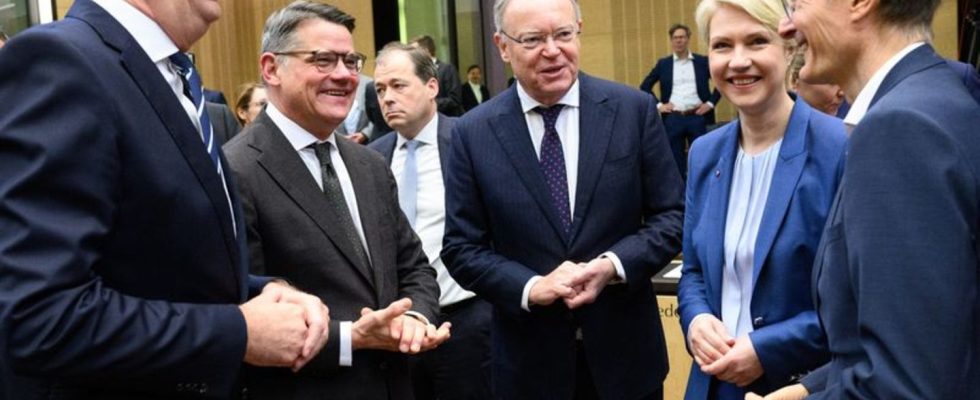Economy
Federal Council stops the traffic light coalition’s growth package
Stephan Weil (SPD), Prime Minister of Lower Saxony, with colleagues in the Federal Council. photo
© Bernd von Jutrczenka/dpa
Companies should be relieved and approval procedures simplified. The traffic light wants to reward climate protection investments. But the states are not convinced, the Federal Council is pushing for a compromise.
The law provides tax relief for companies until 2028 and an acceleration of approval processes. The relief should amount to seven billion euros annually. The key point is a bonus for investments in climate protection. 15 percent of companies’ expenses for energy efficiency measures should be subsidized as direct financial support. The law also contains tax incentives to stimulate struggling housing construction. Additional tax incentives for more research are also planned.
Burdens for the countries too high?
Prime Minister Weil calculated that the law would result in a total loss of state revenue of 32 billion euros by 2028. According to its calculations, the federal government contributes around 37 percent of these losses, with states and municipalities accounting for 63 percent. The municipalities, which are already under great financial pressure, would be asked to pay an additional two billion euros. “One can only strongly warn against this.” It is imperative to strengthen the local level and not weaken it.
Weil also pointed out that, according to a study by the German Economic Institute, the law can only be expected to increase investment by 0.6 percent. “It doesn’t look like we’re dealing with a targeted proposal here.”
Saxony’s Prime Minister Michael Kretschmer (CDU) criticized the federal government’s unilateral approach: “It is of course not at all and in no way trust-building that this law is presented without consultation, without reasonable cooperation – under the motto: Eat or die.” You can’t work like that. “That’s not what our constitution provides for. That’s not the culture of the Federal Republic of Germany either. That’s just bad government work.” In addition, no one knows what will happen financially after the Karlsruhe budget verdict. “That’s why we need a pause for consideration.”

